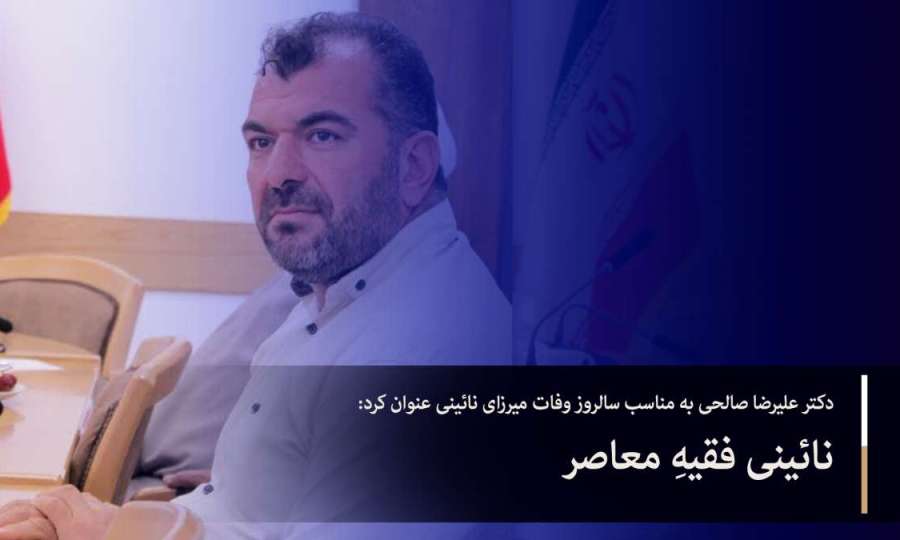In a conversation on the occasion of the anniversary of Mirzay Na’ini’s death, the researcher of Daneshnameh Fiqh Mu’aser has investigated the lesser-known aspects of his personality during an exclusive conversation with the Institute of Contemporary Jurisprudence Studies.
The details of the exclusive interview of the Institute of Contemporary Jurisprudence Studies with Dr. Alireza Salehi, the researcher of the Contemporary Jurisprudence, are as follows:
Multidimensional jurist
The late Mirza Muhammad Husayn Gharavi Na’ini is considered one of the contemporary scholars with Shi’i dimensions, because he understood the school and character of three prominent seminaries of his time: Isfahan Seminary and attending the lessons of Jahangir Khan Qashqa’i, Samarra Seminary and attending the lessons of Mirza Shirazi and Najaf and Karbala and attending the lessons of Akhund Khurasani.
The presence in these three areas and the talent of Mirzay Na’ini caused him to become a reformer of the principles, because he is the owner of great innovations and has great students such as Ayatullah al-Uzma al-Khu’i.
An active jurist in social events
He had an active encounter with the events of his era; In Samarra, he was with Mirzay Shirazi in the tobacco movement, and then during the constitutional period, and after that, he was an active participant in the struggle of the Iraqi people with the British, along with Sayyid Abulhasan al-lsfahani. For this reason, he is not only considered as one of the most important scientific theorists, but also has a political personality and activity.
A rational jurist
As a principled jurist, Na’ini has intellectual foundations that have been effective in his political theories:
First, he had a direct encounter with newly emerging western ideas in the field of Iraq, which had been introduced to Iraq by the Ottoman government, and for this reason, he attached great importance to reason and the way of thinking, because had certain principles and was alien to news-oriented approaches. He cared about the intellectual life of the world and considered it as a proof.
Second, he divides Shari’ah rulings into written and unwritten, which means that he believes that every issue is either rooted in religious literature, which is written and followed according to the same root, or it is not rooted in religion, in which case he believes that the task should be determined. In this area, it is left to the intellectuals and the jurist can legislate in it.
In this context, he relies on the independence of rationality and adjusts non-texts with this tool.
Political jurist
After the beginning of minor tyranny in Iran, Na’ini made a jurisprudential and principled defense of the constitutional government by writing the treatise “Tanbih al-Ummah wa Tanzih al-Millah” and deals with the major political issues based on religious teachings, and this is a sign of Naini’s scientific courage. What’s more, this happens when the constitution is abandoned and the constitutionalists have either been arrested and executed or isolated. The situation is such that al-Khurasani al-Mukhtar, as the biggest supporter of the constitution, is about to close his studies, while in the past, when he used to pray in the lmam Ali shrine, all the halls were filled.
In this book, Na’ini responds to the doubts raised by the constitutional opponents, so that many believe that this defense is the most important defense in rejecting the constitutional doubts.
It has been said about this book that the branches of government have been presented and systematized in this treatise.
Naini’s thoughts have influenced many thinkers after him, such as Imam Khumayni and Ayatullah al-Uzma Sistani.

